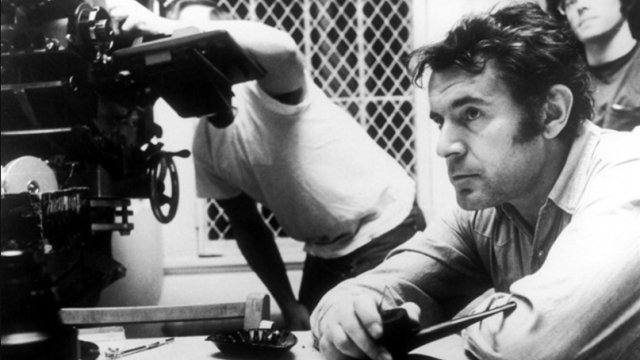When the Nazis and Communists first came to Czechoslovakia, they declared war on pornographers and perverts. Everyone applauded: who wants perverts running through the streets? But then, suddenly, Jesus Christ was a pervert, Shakespeare was a pervert, Hemingway was a pervert. It always starts with pornographers to open the door a little, but then the door is opened wide for all kinds of persecution.
His parents were killed in the Holocaust—despite being Protestant, they were sent to the camps because the Nazis believed them to be members of the Resistance. It later turned out the man he’d believed was his father was not; his biological father was a Jewish architect who had himself survived. He left Europe during the Communist invasion of 1968, coming to the US. He was already an accomplished director; his 1967 film The Fireman’s Ball was nominated for Best Foreign Language Film.
From what I can tell, he never took the freedoms he had in the US for granted. He firmly believed that art was an important aspect of freedom of expression. His adopted father was killed for selling books. He worked in Czech TV in the early Communist days, and his stories are pretty appalling. Every word had to be vetted by the authorities. Not just what was aired but questions he asked for interviews. Yes, the studios controlled a fair amount, and there’s a film he never made because the sumo people didn’t like how it portrayed sumo, but at least he wasn’t forced to espouse any particular views himself.
Honestly, he didn’t make all that many movies. IMDb lists a mere thirteen directorial credits. But my, it’s a list—his Oscar-winning One Flew Over the Cuckoo’s Nest and Amadeus. A further nomination for The People Vs. Larry Flynt. Goya’s Ghosts, which I consider an underrated gem with Goya’s Scandianvian doppleganger Stellan Skarsgård in the lead. (No, it’s creepy; check out one of Goya’s self-portraits.) Hair. And, okay, Man in the Moon, which he was making when his twin sons were born, so they’re named Andy and Jim.
He was one of the leading lights of the Czechoslovak New Wave, a film movement that I frankly don’t hear enough about. I’m fascinated by the movies that were made in Eastern Europe in the ’50s and early ’60s, when filmmakers thought they’d be able to explore, before art was repressed. The Firemen’s Ball lost its Oscar to the incredibly lavish Soviet production of War and Peace. And indeed, Forman himself once said that he’d make a film with the budget you wanted, doubtless part of his experience as a poor Czech filmmaker. (Yes, Czech and not Slovak; I looked it up.) But it’s not a film that could have been made even two or three years later.
Forman mocked the American Right’s obsession with socialism. He knew from repressive Communist governments, and he knew the difference between that and the Western European socialism that the US sometimes flirts with. One, he feared; one had hurt him. One, he’d escaped. One, he believed, would prevent him from making the movies he wanted. It wasn’t the one that suggested that maybe giving poor people health care would be nice.


